
'A very small pebble in a very large pool': When Peter Sellers broke up with the BBC
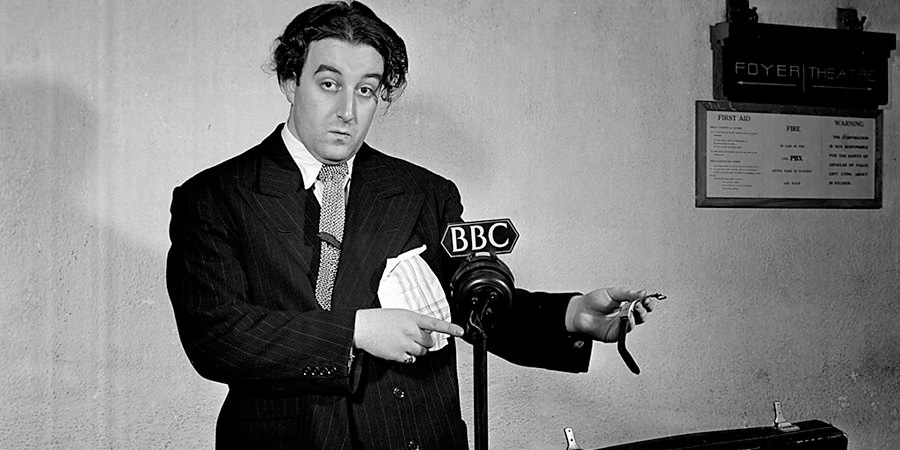
We can all crack under pressure. The infamous scene in the movie Network (1976), when the TV news anchor Howard Beale, after 'running out of bullshit', snaps and starts ranting live on air ('I'm as mad as hell and I'm not going to take this anymore!'), continues to strike a chord in many a harassed human being. Long before the fictional Beale's outburst reached the screen, however, Peter Sellers was responsible for a similar rant in real life.
It happened in 1958, at the end of a live BBC television show, and it shook those who saw it on both sides of the camera. 'It remains to this day', his biographer Roger Lewis would write, 'the nearest thing to a nervous breakdown anybody has had on air'.
It now looks like merely the first in a long-running series of clashes with authority that kept threatening to kill Sellers' comedy career. A contrarian of rare intensity, he would go on to upset numerous British movie producers, many American movie producers, countless directors, writers and other actors to the point where some of them probably longed to emulate Cato's sudden and brutal attacks on Inspector Clouseau - but, at the time, this early battle with the BBC took most people by surprise. Just when he was getting used to the hand that was feeding him, he decided to bite it and draw some blood.
Sellers' working relationship with the BBC had started back in 1948. He had been so desperate to work for the Corporation, while struggling to prompt a response (save for a fleeting one-off appearance on a little-watched afternoon TV show), that he ended up resorting to cheating to finally get his chance.
Ringing from a scruffy old public telephone booth in Soho, he called Broadcasting House, pretending to be one of the biggest comedy stars on radio at that time, Kenneth Horne, and asked to be put through to the radio producer Roy Speer. Imitating Horne's deep and distinguished-sounding voice, he sang his own praises and recommended himself for a programme called Show Time, before finally revealing, once Speer had been speared, who he really was.
'You cheeky young sod!' gasped the producer. 'You've got the nerve of the devil! Come on, then: what do you do?'
Sellers replied: 'Well, obviously, impersonations...'
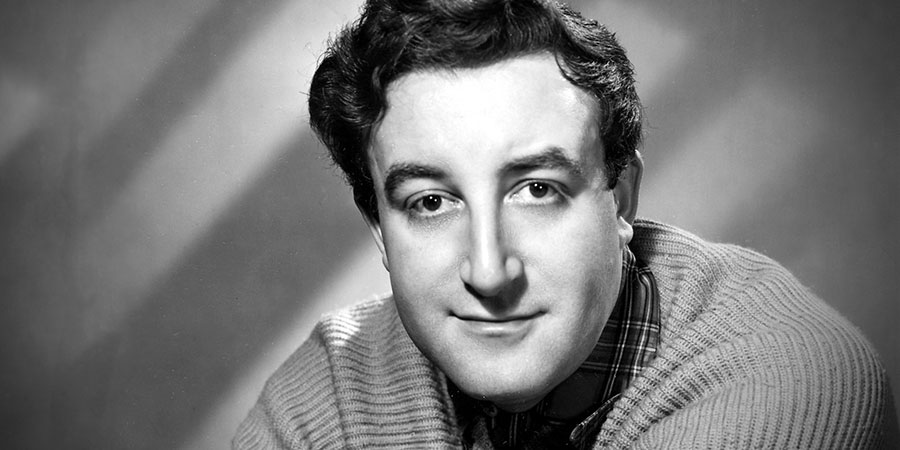
Once Speer had recovered from the shock, he invited Sellers to visit his office, where he told him once again that he was 'a cheeky young bastard', and muttered 'this is highly irregular...' He found, however, that he rather liked this ambitious young man, and appreciated his comic potential.
The upshot was that, shortly after this meeting, on 1st July 1948, Show Time went out on air featuring a new guest: Peter Sellers. He did impersonations.
He went from strength to strength after that, soon becoming a regular guest on the BBC's numerous variety shows. He kept popping up in the likes of Variety Bandbox, Workers' Playtime, Starlight Hour, Ray's A Laugh, Petticoat Lane, Music-Hall and First House Presents, with his versatility, as a comic and impressionist, earning him more and more air time and interest.
The Goon Show followed in 1951, and, once it took root, suddenly Sellers was a star. He was Bloodnok, he was Bluebottle, he was Grytpype-Thynne, and he was beloved by a generation of radio comedy fans.
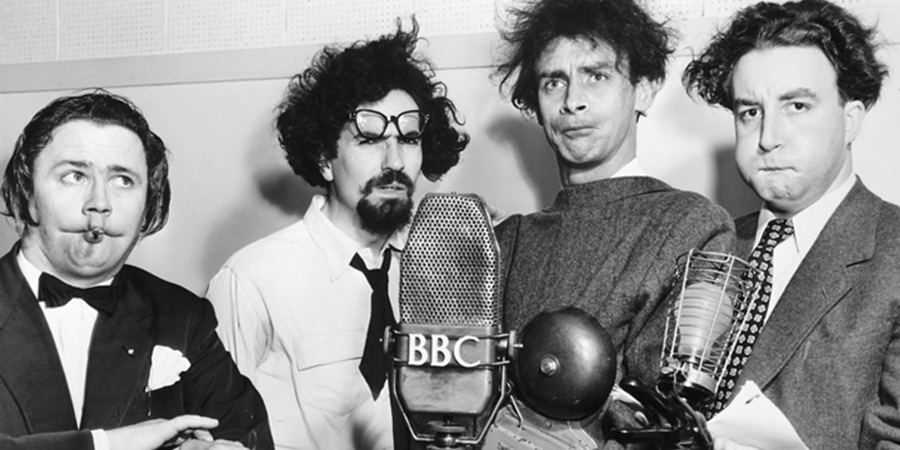
The BBC, by this time, seemed to love him, too. There was plenty of in-house praise for his performances, the guest spots continued to grow, and plans were being drawn up behind the scenes to find a suitable starring vehicle for him on radio or TV.
Then Sellers came to the attention of Tom Sloan. This is when the relationship suddenly soured.
The Assistant Head of Light Entertainment at the BBC's television division, Tom Sloan was a dour, Dulwich College-educated son of a Scottish Free Church minister whose mentality was so middle-of-the-road he might have had white lines running down his back. A Corporation man through-and-through, he had his own take on what the BBC was supposed to be doing, and this did not include suffering fools gladly, even when it was employing some of these fools to entertain the nation.
'Tom was a mainstream man', his colleague Bill Cotton would tell me. 'He had strict standards, strong ideas about decency, he believed in supporting the status quo, and he hated anything that he suspected was subversive. As far as entertainment was concerned, his attitude was probably epitomised by The Black And White Minstrel Show - that was the kind of thing he was most comfortable with: cosy, undemanding, family entertainment. What he hated was anything edgy and satirical, such as That Was The Week That Was, which would have him banging the table at meetings and warning colleagues that "The rot starts here!"'.
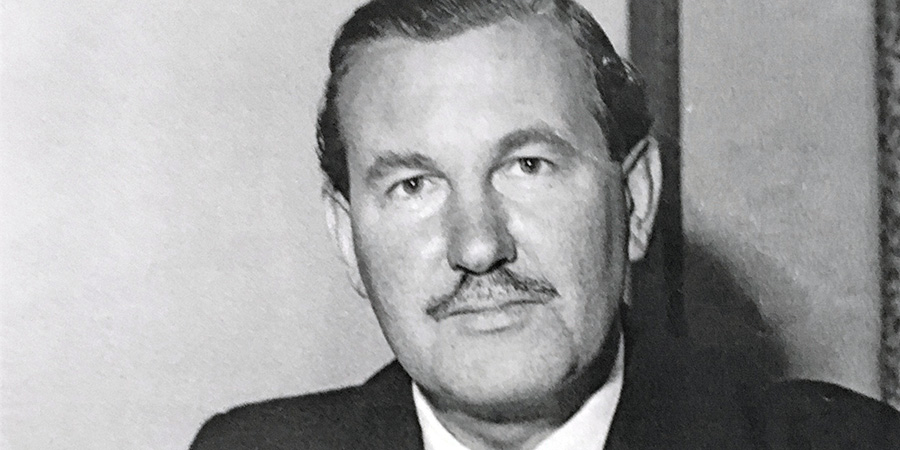
Never a great fan of Goon humour, which at best he found bewildering and at worst childish and sometimes even offensive, Sloan was never suited to dealing with someone as chaotic and mercurial as Sellers. He expected everyone with whom he worked to be disciplined, industrious, conscientious, respectful and consistently predictable, and while Peter Sellers was capable, on a good day, of being several of these things, he was never, ever, going to be predictable except in the sense of being predictably unpredictable.
Sloan, therefore, kept his distance from the comedian, while discreetly monitoring his movements with a mounting sense of suspicion. He had heard all about his antics alongside Spike Milligan while working in radio: the rows with producers during rehearsals, the drunken stunts in the studios, the regular attempts at sneaking saucy material past the censors and the odd occasions when BBC property had been damaged or destroyed.
Sloan thus kept watching him, reading reports about him, and thinking about him. There was just something about Sellers, simply put, that kept bothering him.
Sellers himself, meanwhile, was getting restless. It was a transitional time for him, with one foot still in British grit and the other one starting to slide towards American glamour. His movie career was beginning to advance (with increasingly prominent roles in the likes of The Ladykillers, 1955, and The Naked Truth, 1957), commercial television companies were starting to compete with the BBC for his small screen services, Hollywood agents were arriving to circle around him, and he was feeling increasingly ambivalent about his association with his fellow Goons.
Some people were whispering in his ear that he should not be so parochial and ought to start aiming for international fame. Some were advising him to stay put where he was, play to his current strengths, and build gradually on his burgeoning success as one of Britain's most popular performers. Others were urging him to shake off his old 'gang show' mentality, be more selfish and concentrate on being a singular star. Plenty were telling him that, with his talent, there was nothing that he couldn't now achieve. Then there was his trusted clairvoyant and astrologer, Maurice Woodruff, who was telling him what the spirits were suggesting.
All of these ideas and assertions, and others, were bouncing around in his brain during this period. Some days, they triggered a sense of energy and exhilaration. Other days, they sparked a sense of anxiety, insecurity and paranoia.
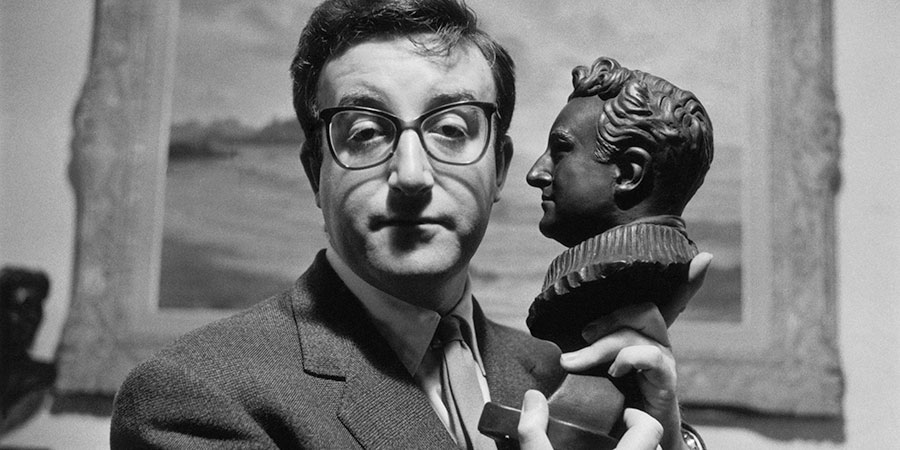
It was with this somewhat troubled state of mind that Sellers started work on his next television show for the BBC in the spring of 1958. Entitled The April 8th Show (Seven Days Early), it was his first substantial TV project for a couple of years, and the first of what some at the Corporation hoped would be a steady flow of increasingly ambitious starring projects.
Produced by Tony Hancock's television mentor Duncan Wood, with material written by Alan Simpson, Ray Galton, Johnny Speight and John Antrobus, and featuring the likes of John Vere, Graham Stark, Totti Truman Taylor, Patricia Hayes, David Lodge, Mario Fabrizi, Harry Fowler and Ronnie Brody, it received very little publicity during its planning stages, mainly because, as the Radio Times noted presciently, 'surprise is the essence of a good joke'. Within the team, however, the mood was extremely positive, with Sellers increasingly excited about the quality of the material that was being crafted expressly for him.
The problems only began when Sellers was informed during the last day of rehearsals that a six-minute sketch (written mainly by Johnny Speight), set inside Number Ten Downing Street and featuring him as the then-Prime Minister Harold Macmillan, was going to have to be cut after an intervention from an unnamed executive who, it was said, had objected to the mocking of a high-ranking official. Echoing the BBC's increasingly outdated 'Green Book' - the 'programmes policy guide' for variety and comedy writers, performers and producers, introduced a decade before, which prohibited, amongst other things, impersonations of public figures - the word from on high was that the routine would have to go.
It is at this stage in the story that, as the saying now goes, recollections may vary. According to Sellers himself, for example, he reacted to this abrupt act of censorship with remarkably good humour, improvising a mock-outburst about the powers-that-be which caused so much laughter in the rehearsal room that Duncan Wood suggested that, with a little tidying up, he could fill-up a couple of the minutes they had now lost from the script by closing the show with the routine.
According to Duncan Wood, however, Sellers reacted angrily, and there was nothing contrived about his outburst, and at no point did the producer suggest that he use any of it in the show. As Wood testified at a subsequent internal inquiry about the incident, he simply told Sellers to calm himself down, and then started liaising with the writers to stretch out some of the existing sketches in the hope that the show would keep to the right running time.
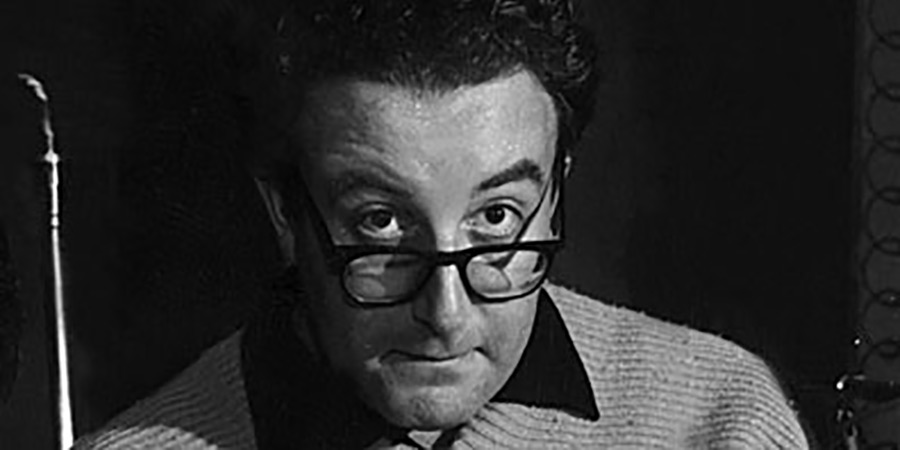
Sellers, meanwhile, was seething with resentment, and he was in no doubt as to the identity of the nameless executive who had intervened to censor his sketch. Tom Sloan was notorious within the BBC for his forensic attention to detail when it came to reading through scripts, as well as for his readiness to intervene should he ever spot anything he judged to be in questionable taste. The censor must be Sloan, Sellers reasoned quite correctly, and he was determined to get his revenge.
His first step in this direction was to make Sloan's private intervention public by leaking the story to one of his friends in the press, claiming not just that his own routine had been suppressed but also that comedy in general was being subjected to all kinds of suffocating censorship by certain BBC executives. This had the desired effect, in the sense that it made Sloan, when he read the reports in his office, positively apoplectic.
Although the newspapers had not named him, he nonetheless felt forced to issue an immediate (but anonymous) response, and so he arranged to make a statement via the BBC, later the same day on 31st March, that said: 'There is no truth in the suggestion [...] that the BBC has imposed a general ban on comedians' material. The BBC did decide that a sketch which had been written for the Peter Sellers television programme tomorrow night should not be broadcast. The sketch in question was built on an impersonation of the Prime Minister'.
'The BBC has always made it clear', the statement went on, 'that impersonations of Royalty and well-known people in public life are not to be the subject of comedy turns. In the sketch in question the Prime Minister was made to use abusive language to his wife, and the script made fun of the summit talks and the issue of world peace. The BBC, on the basis of its ordinary practice, considered the sketch to be in bad taste'.
The statement concluded: 'This particular incident does not imply any ban on the work of script-writers or artists in the BBC's services of sound or television'.
This lofty put-down further enraged Sellers, who now felt as though he was taking on the whole of the BBC rather than just one obdurate member of its staff. The feeling fed his deep-rooted aversion to authority, while also suggesting that the stakes were stacked against him.
Sloan, in turn, had been shaken by Sellers' shot across his bows. He was not used to such insolence, and he was wondering what might be coming next from this rogue performer.
The battle between Sellers and Sloan was still at the phony war stage, with no direct communication yet between them, but each was already succeeding in thoroughly irritating the other. The gunpowder had been scattered across the ground between them; all it needed now was something to spark it into an explosion.
When, therefore, the show was about to go out on air - appropriately enough on April Fool's Day at 7.30 on Tuesday evening - Sloan, watching at home, and Sellers, in the studio, were both in an agitated state. Sloan, with his telephone by his side, was sitting up in his usual stiff, straight-backed manner, stroking his thin military-style moustache pensively as he sipped his scotch and stared expectantly at the screen. Sellers, withdrawn and unusually quiet, was pacing up and down one of the corridors backstage at Lime Grove studios, trying to focus on the script while struggling to keep his emotions in check.
Then the lights went on, the show began, and everyone plunged into their performances. What followed was - according to those who witnessed it (no recording appears to have survived) - an energetic, fast-moving and very entertaining affair. There were cleverly characterful sketches by Galton & Simpson, and some sharper, spikier, routines by Johnny Speight, and Sellers, at the centre of it all, seemed in excellent form.
Then, quite suddenly, something in Sellers snapped. Perhaps it was down to the strain of having to keep assessing how well or otherwise the show was following its hastily-revised schedule, or the festering frustration about its missing climactic sketch, or simply a sudden spasm of mischief, but, as the show was almost over and the credits started to roll, he departed from his marks, strode aggressively towards the camera, reached out to the caption roller and violently tore it off.
'It was a genuinely dramatic and alarming sight', Bill Cotton, who was watching at home, would recall. 'The cameraman, out of fear, pulled back, so you saw Peter, with this really manic expression on his face, tearing the caption roll into lots and lots of tiny little pieces. You sort of thought, "What the hell is going on?"'.
It was while he was reducing the credits to confetti that, wide-eyed, he started shouting at the camera:
Lies, I tell you! All lies! Cheap, lousy LIES! They didn't tell you he was in the show, did they? It's all Tom Sloan's fault, I tell you! Him and his lousy liniment! He's the cause of it! He's another foreigner, going to Ronnie Waldman's party tonight, they are all at it - him, Pat Hillyard, all of them! And HIM - he's in it! You didn't know about HIM! They are all gone! They are MAD, this lot!!!
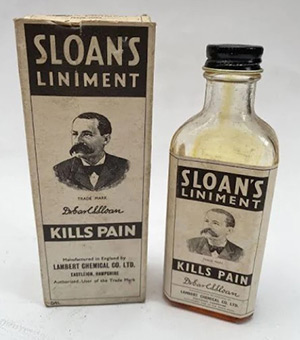
Some of the details of the rant can be made more comprehensible for today's readers: Ronnie Waldman, for example, was the BBC TV's Head of Light Entertainment and Sloan's immediate superior; Pat Hillyard was one of Sellers' old bosses from his radio days; and Sloan's Liniment - nothing to do with Tom - was a popular embrocation used for the treatment of aches and sprains. Some of the other strands of the diatribe, however, make as little sense now as they did back then to anyone other than Sellers.
The air of edgy incoherence only added to the unnerving impact of the intervention. If he had been aiming mainly for shock, then he had certainly wrought just what he had wanted.
It seemed, however, that Sellers still didn't realise quite how formidable an enemy he had made. Tom Sloan was not just some middle-ranking bureaucrat who could be poked at through the cage with impunity. He was a boss who could break careers.
'He knew how to work the BBC machine', Bill Cotton would recall. 'He knew exactly which buttons to press and which levers to pull. So that meant he could get people out of trouble if he wanted to - and, to his credit, he did so on quite a few occasions - but woe betide you if you upset him, because he could get you into trouble, or further into trouble, like no one else around at that time'.
No one at the BBC doubted into which category Peter Sellers had now been plunged. He was in trouble with Tom Sloan - and that meant big trouble.
The first thing on the next morning of 2nd April, a still-furious Sloan marched into his office and dictated a memo which he sent - as he liked to do when he wanted to really sink his teeth into someone or something - to practically everybody else in the BBC. It read:
PETER SELLERS
I attach a script of the [April 8th Show] transmitted yesterday together with a transcript of what he said at the end of the show as he ripped the roller caption to pieces.
I propose to write to his agents, Lew and Leslie Grade, and express our extreme disapproval of his misbehaviour and draw their attention to the fact that he committed a breach of contract. I suggest that this is the most we can do on this occasion, but I will certainly see that Mr Sellers is only booked with my consent in the future.
His colleagues knew better than to stand in his way when he was in this kind of mood. Many of them, in fact, agreed with him and were quick to send him their support.
Sloan thus snapped into action. He wrote to Dennis Selinger, the agent who looked after Sellers at the Grade organisation, saying:
I would like to draw your attention to Clause 7 of the [BBC] contract in which it is clearly stated that no remark or interjection can be incorporated in the performance which has not been passed by the producer. Mr Sellers was quite clearly told by the producer that such remarks as he eventually made would not be permitted. He chose to disregard the producer and thus committed, in our view, a breach of contract. In addition to this you will realise that he uttered what could be considered defamatory remarks against a well-known product and since this was done against our clear instructions I would not consider the Corporation responsible in any action that may arise out of such circumstances.
Finally, I would like to make it quite clear that the fact that my own name was mentioned has nothing whatsoever to do with my attitude. I think it is a clear case of an artist disobeying a producer's instructions and I consider such conduct inexcusable and unprofessional.
Yours sincerely,
Tom Sloan
Sellers, on being informed of this complaint, reacted with a predictably dramatic burst of anger, self-pity and panic, blaming everyone except himself for the incident. Summoning his friends in the press to plead his case, he attempted to regain the initiative by effectively banning himself from the Beeb. 'I will never appear on BBC Television again,' he announced loftily via the tabloid newspapers. 'I can only work where I am happy. I cannot work where there is such a childish outlook'.
In a move that was more indicative of his currently shaken state of mind, he also wrote a long and angrily rambling letter directly to Sloan which bounced bizarrely back and forth between the accusatory, the defensive and the downright disingenuous. 'This simply will not do', he announced, as he went on to tell his version of the sequence of events that led up to his explosive outburst, insisting that it was the BBC, and not himself, who had actually been at fault.
'This being the case', he said, after already saying quite a lot, 'I am inclined to take a conciliatory view of the whole matter provided that you are prepared to withdraw all statements in your letter derogatory to me, and in particular the references to disobedience and inexcusable and unprofessional conduct contained in the last sentence. It seems to me only right that should be done'.
Switching immediately to a rather less conciliatory view, he went on: 'If however you are not disposed to do it, then I shall be forced to press for an impartial inquiry into the whole matter. In addition, allegations of this type should be made to me personally and not to third parties. This increases the gravity of what has happened, and I must of course reserve all my rights in this connection'.
He then concluded: 'I have had the closest and friendliest association with the BBC for about ten years now, and I cannot see why this should be upset by the fact that you chose to write an apparently precipitate and ill-judged letter. It is a very small pebble in a very large pool, and if it had not been for your references to unprofessional conduct etc., I daresay it would have come under the heading of debatable trivia. Such references however cannot stand'.

The letter achieved nothing except to stoke the embers of their mutual enmity. Sloan, who could barely believe the lack of respect he was being shown, replied with a long and rambling letter of his own.
Starting with a suspiciously clumsy misspelling of Sellers as 'Sellars', Sloan proceeded to counter-claim all of the comedian's counter-claims, insisting that he was solely responsible for his on-screen melt-down and therefore must be held solely responsible, legally and professionally, for its consequences: 'I cannot believe that you were not aware of the damaging nature of some of these remarks and that to transmit them could not possibly have been within the policy of the Corporation. It is not enough to say that they were in keeping with the general sense of the last sketch - there is not the slightest reason for using real names in such a context'.
'Finally', he eventually concluded after several more admonitory observations, 'may I say that at no time did the BBC publicise this affair in any way. A reporter on the Daily Express quoted to me passages from my letter to you and said that he had received them from you. To all enquiries we have said the matter is closed, and that you would be appearing on May 3rd [in a show called The World's Our Stage]. I would suggest that things should remain that way because I can see no value in pursuing the matter any further'.
Even then, Sellers spluttered on for a day or two longer, insisting to journalists, improbably, that he had considered taking the matter to court ('My lawyer friends say I've got a good case...'). After that, however, just when he knew that the BBC was indeed investigating the matter internally, he slipped out of town, kept his head down, and waited for everyone else to move on.
The feud came to a close, at least as far as the public was concerned, quite quickly. After the initial reports of the two men clashing, Sloan agreed with his fellow executives (once the investigation had promptly ruled in his favour) that the controversy now needed to be contained, and so the BBC put out a statement on 8th April, saying: 'We do not consider there is any quarrel now. Mr Sloan has not taken offence about the remarks made about him in the programme'.
Sellers, under pressure from Dennis Selinger, was similarly conciliatory in his remarks. 'I am willing to accept further engagements from the BBC', he said, 'if they still want me'.

Behind the scenes, however, the bad blood continued to circulate. Sloan, contrary to the Corporation's comments, continued to take offence at Sellers' behaviour, and Sellers continued to resent what he regarded as Sloan's attacks on his character and professional integrity. Neither man would forgive, and neither man would forget.
The experience seems to have played a pivotal role in turning Sellers away from the small screen towards the big one, with him signing a five-year contract with the Boulting brothers at the start of the following year. 'It was all films after that', Dennis Selinger would say. 'That was his focus from that time onwards'.
He would, however, be tempted to return to television, and the BBC, one further time, seven years later, when he was offered the starring part in his friend Johnny Speight's new sitcom Till Death Us Do Part. Speight had been wanting to work with Sellers again ever since The April 8th Show debacle, but while the actor had been open to developing something for film, the writer preferred to tailor his projects for TV.
They had almost been reunited in 1961 for Speight's one-off play The Compartment, because, as it was made by the BBC's Drama department rather than its Light Entertainment department, Tom Sloan was formally powerless to block the performer from taking part. In the end, however, another actor, Michael Caine, struck Speight as better-suited to the role, and another potential collaboration was allowed to pass.
Then came Till Death in 1965. The show's producer, Dennis Main Wilson, as well as Speight himself, thought that the central character of Alf, the chronically ranting right-wing working-class bigot, would be an ideal role for Sellers to sink his teeth into, a kind of conservative counterpart to the similarly dogmatic socialist Fred Kite.
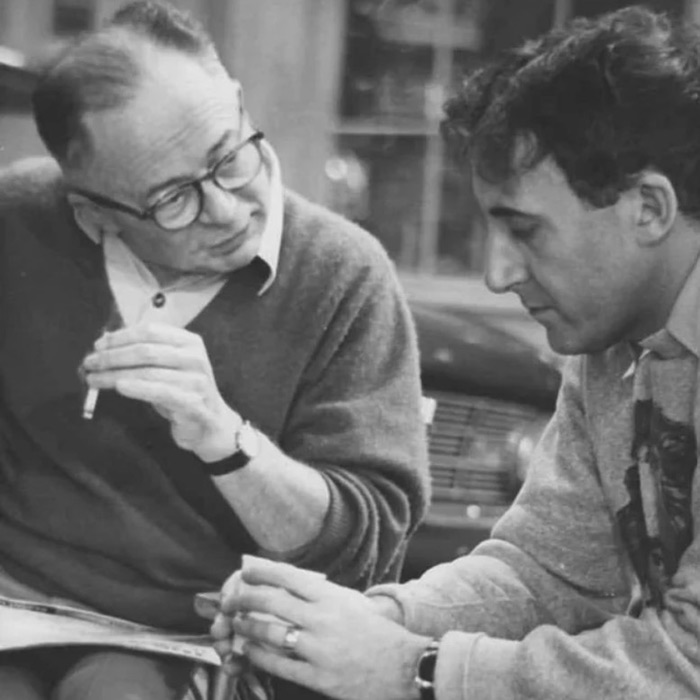
Sellers, it seems, thought the same. With his Hollywood career now unexpectedly on hold - after recently suffering multiple heart attacks, he had been promptly dropped by the director Billy Wilder from his movie, Kiss Me Stupid, having already endured more than enough of the actor's erratic behaviour ('Heart attack? Heart attack?' Wilder had exclaimed. 'You've got to have a heart before you have an attack!') - he was ready to turn back to television.
There was only one problem - but it was a big problem. Not only was the pilot going to be made by Tom Sloan's Light Entertainment department; it was also set to be broadcast as part of the BBC's Comedy Playhouse showcase - a series devised by none other than Tom Sloan himself.
The prospect seemed downright incendiary in its probable consequences behind the scenes. Sloan already distrusted Main Wilson and Speight for being, in his eyes, irresponsible troublemakers. Now this dreaded duo was due to become a terrible trio with the return of Sloan's other arch-tormentor, Peter Sellers. His rage, once the news reached him, seemed destined to reach volcanic proportions.
Sloan was only saved from being sucked into his ultimate broadcasting nightmare by the fact that, at this stage, Peter Sellers proved far too expensive for the BBC to hire. 'He'd read the script and said he'd definitely do it', Johnny Speight would later recall. 'So Dennis and I were cock-a-hoop. But then money was discussed, and Peter always needed big money - he spent a lot! And doing another film meant lots of money, whereas doing this for BBC money would hardly pay for his butler. So he dropped out and we ended up getting Warren Mitchell instead'.
It was probably for the best for all concerned. Mitchell would go on to excel in the role; Sellers would earn far more while clashing with people in far more glamorous locations; and Tom Sloan would only have to keep threatening two, rather than three, employees with the sack on a weekly basis.
It still seems a shame, nonetheless, that, back in 1958, such a very small pebble, tossed into such a very large pool, caused quite so many ripples. Handled more calmly and coolly on both sides of the shore, the television of the next few years ahead might, every now and then, have found more space for an unpredictable comic spirit, and Peter Sellers might have found a saner place in which to play.
Help us publish more great content by becoming a BCG Supporter. You'll be backing our mission to champion, celebrate and promote British comedy in all its forms: past, present and future.
We understand times are tough, but if you believe in the power of laughter we'd be honoured to have you join us. Advertising doesn't cover our costs, so every single donation matters and is put to good use. Thank you.
Love comedy? Find out more
